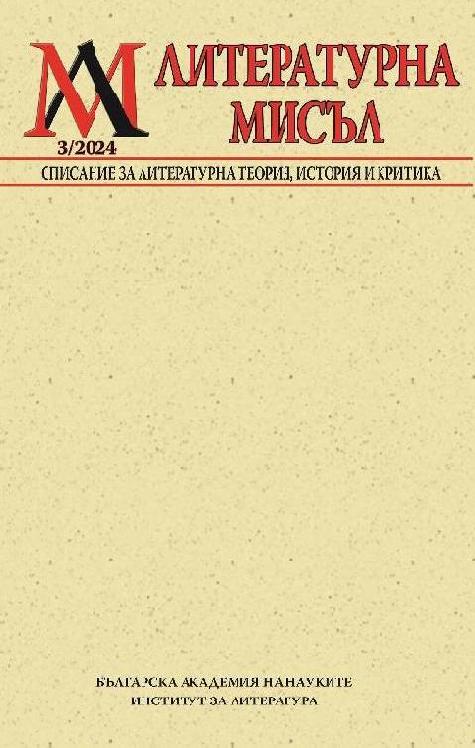Интелектуалисти и импресионисти: Минко Николов, Тончо Жечев и Искра Панова
Intellectualists and Impressionists: Minko Nilolov, Toncho Zhechev and Iskra Panova
Author(s): Kamelia SpassovaSubject(s): History, Language and Literature Studies, Cultural history, Studies of Literature, History of ideas, Philology, Theory of Literature, Sociology of Literature
Published by: Институт за литература - БАН
Keywords: Odysseus; cosmopolitan; conservative; mythmaking; demythologization; the tradition of anti-tradition; alienation
Summary/Abstract: In the chapter “Contemporary Myth-Making and Myth-Unmaking” from the book “Between Deadlock and Humanism. On Some Phenomena of Modern Western Literature”, published postmortem in 1967, Minko Nikolov delineates two divergent trends in Bulgarian critical thought during the 1960s in the Eastern Bloc. These tendencies constitute a good prism through which to interpret the critical debate on Zhechev’s “The Myth of Odysseus”. The trend of myth-making relates completely to Toncho Zhechev who constructs a modern myth of “return to homeland”, encompassing ancestors, family, village, tradition, or more broadly, a mythological, cyclical conception of time. The reverse trend of myth-unmaking in this context is attributed to Iskra Panova, Minko Nikolov, and the intellectualist vein in general. This article focuses on the debate between “intellectualism” (modern critical thinking) and “impressionism” (essayistic creative thinking) as preceding the structuralists/impressionists polemic in the 1970s. The basis of the intellectualists-impressionists conflict is an authentically Bulgarian-European axis that continues haunting our public discourse.
Journal: Литературна мисъл
- Issue Year: 67/2024
- Issue No: 3
- Page Range: 102-122
- Page Count: 20
- Language: Bulgarian
- Content File-PDF

